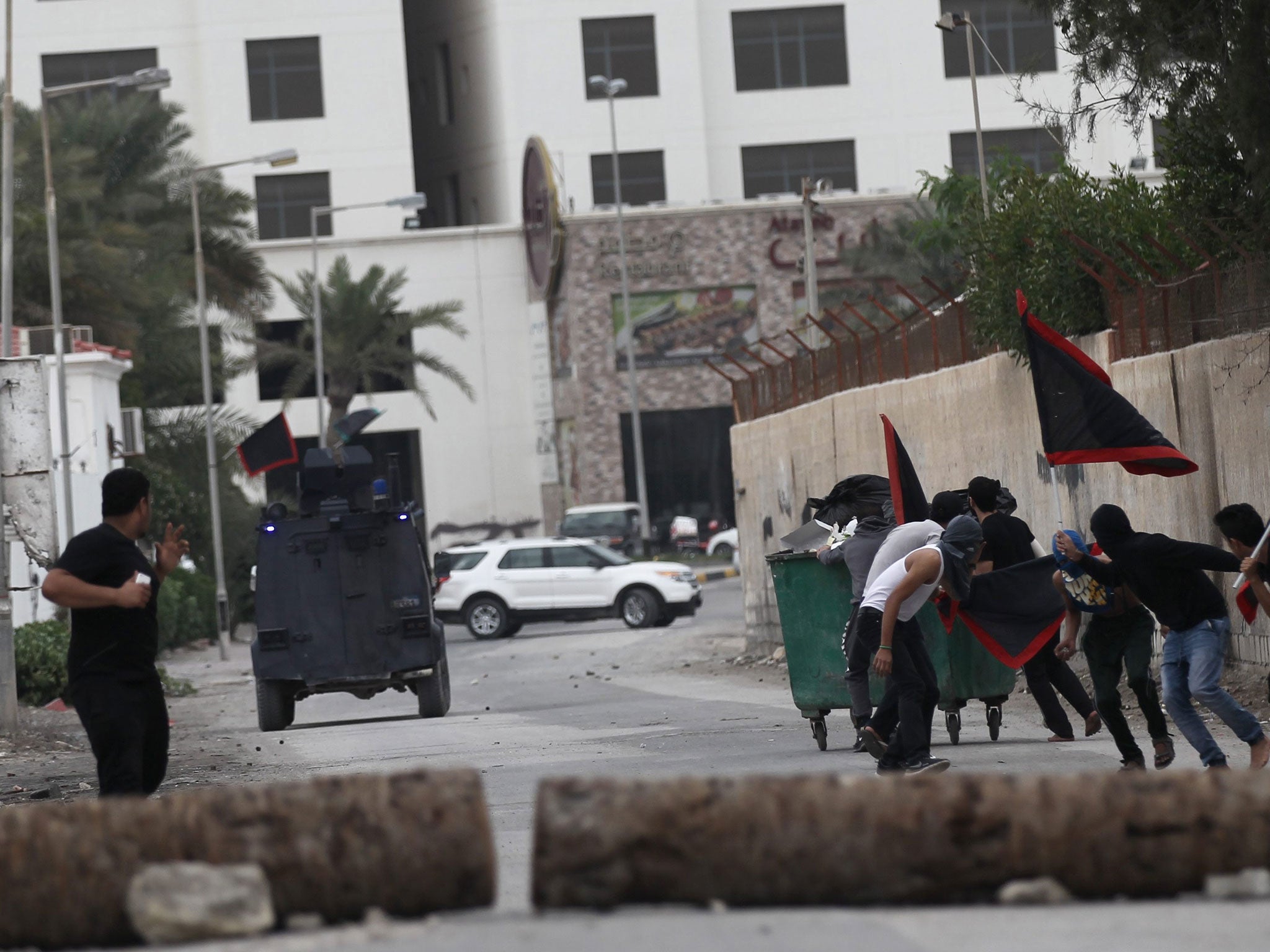Saudi Arabia is setting a dangerous precedent to the Government of Bahrain
Bahrain is suppressing dissent by rendering citizens stateless and condemning them to death; all under the watchful eye of its neighbour


Your support helps us to tell the story
From reproductive rights to climate change to Big Tech, The Independent is on the ground when the story is developing. Whether it's investigating the financials of Elon Musk's pro-Trump PAC or producing our latest documentary, 'The A Word', which shines a light on the American women fighting for reproductive rights, we know how important it is to parse out the facts from the messaging.
At such a critical moment in US history, we need reporters on the ground. Your donation allows us to keep sending journalists to speak to both sides of the story.
The Independent is trusted by Americans across the entire political spectrum. And unlike many other quality news outlets, we choose not to lock Americans out of our reporting and analysis with paywalls. We believe quality journalism should be available to everyone, paid for by those who can afford it.
Your support makes all the difference.A year ago I woke up stateless. An official statement from the Bahrain Ministry of Interior announced the revocation of citizenship from 72 people. When they took my nationality, they took it from my family too. On paper, my infant son is not Bahraini.
The reasons were vague and ranged from “inciting and advocating regime change” to “defaming brotherly countries.” The list included activists, human rights defenders, journalists, religious figures and political exiles. In a shocking move, we civil society members were named alongside twenty men affiliated to Isis and Al Qaeda.
What was my crime? I was there at the Pearl Roundabout – our “Tahrir Square” – on “Black Thursday” when in the middle of the night security forces cleared sleeping protesters from the monument grounds, killing four in the process. I bear a scar on my forehead from that night – a permanent reminder of the officer’s steel-tipped boots. Later I was arrested and tortured.
On my freedom, I fled to Britain, where I claimed asylum.
Some were not as lucky as me. There are 260 Bahrainis who have been denaturalised since 2012 inside the country. Most of them are still in Bahrain. Those who live in government housing are at risk of eviction. Without residency papers they are unemployable, uninsurable, and unidentifiable on any official system. In an ugly twist, in 2014 a court found ten people stripped of citizenship guilty of illegal residency and ordered their deportation.
There are those who are at risk of death. In 2015, the courts sentenced five Bahrainis to death and revoked the citizenship of them all. These death row inmates have been found “guilty” of killing policemen, and in every case there is significant doubt over the fairness of the trials, amid claims of severe torture.
The threat remains greater than ever after Saudi Arabia broke all the rules with the execution of political dissident Sheikh Nimr al-Nimr on 2 January this year. Bahrain swings in the direction of Saudi Arabia, which is making desperate moves to stymie the warming relations between its rival Iran and the West.
Bahrain has always been reliant on Saudi Arabia, but since 2011, when Saudi led an army into the country to crush the Arab Spring uprising, it has only grown more dependant. Bahrain now polices not just its own dissenters, but critics of Saudi Arabia too. They threatened to prosecute any citizens who dared question the legitimacy of Sheikh al-Nimr’s execution. The country has even imprisoned critics of Saudi Arabia’s war in Yemen – a war which they eagerly joined. Where Saudi Arabia goes, Bahrain will follow.
It was a little over a year ago, in December 2014, that Foreign Secretary Philip Hammond told the country: “Your security is our security; your prosperity is our prosperity; your stability is our stability.” Bahrain’s stability – which apparently means the death penalty, denaturalisation and dictatorship – is Britain’s stability.
The nations' peaceful civil rights movement asks for simple things: respect for our basic human rights, democracy and fair justice. For these requests we are rendered stateless – turned into nothing. Five stateless men sit on death row. If they are executed they will die as no one.
Join our commenting forum
Join thought-provoking conversations, follow other Independent readers and see their replies
Comments